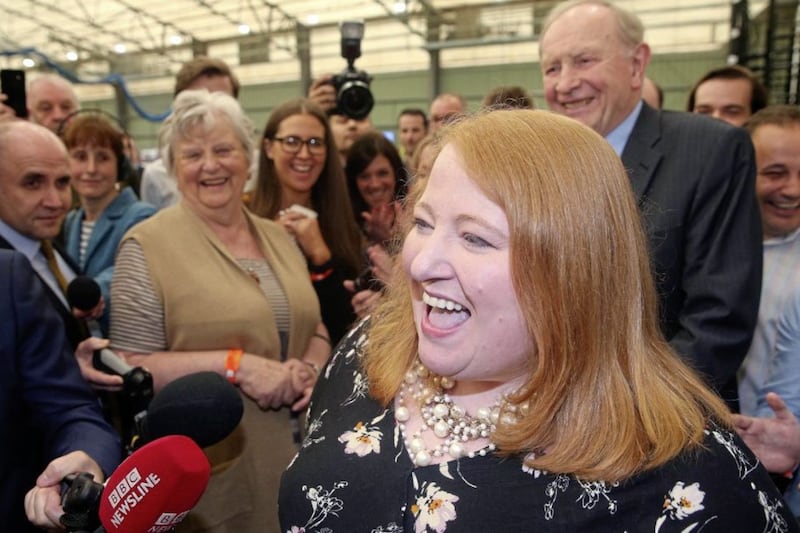MORE people in Northern Ireland claim to be "neither unionist or nationalist", according to new research.
Findings in the Northern Ireland Life and Times Survey reveal 33 per cent of those surveyed in 1998 claimed to be neither unionist or nationalist.
But new research shows in 2018, that figure had risen to 50 per cent.
The study also found a shift away from 'unionist' and towards those who claim to be 'neither' - those who identify themselves not as unionist nor nationalist but as neither.
Women are still significantly more likely to identify as 'neither unionist nor nationalist', according to the survey.
Politics in the north has predominantly been dominated by unionists and nationalist parties, but recent council and European election results have revealed a rising support for Alliance, which describes itself as neither unionist nor nationalist.
Queen's University academics Dr Cathal McManus and Dr Katy Hayward have been examining the growth of the 'neither' community, which he said was a "large and growing, section of the population".
He said the findings "clearly suggest that political identity is in a process of change".
"The big question this raises, of course, centres on the political impact that this change brings about - or doesn’t as the case may be," he said.
"A primary consideration here is that, historically, the 'neither 'population have not necessarily rallied behind any specific political party - Alliance, for example, the party most people might assume to be the direct beneficiaries.
"When asked which political party they feel closest to, only around 16 or 17 per cent of neithers tend to say Alliance.
"Indeed, historically, the party that seemed to gain most backing from the neithers was the SDLP - 19 per cent said it was the party they felt closest to in 1998 and this had risen to 23 per cent by 2007.
"Since then, however, there has been a dramatic collapse with only seven per cent answering SDLP in 2017.
"The vast majority of neithers say that they do not feel close to any of the political parties - around 37/38 per cent in 2017.
"It seems that a political apathy may have set in within the neithers section of the population which, of course, both limits its political impact and ensures that the traditional nationalist/unionist narrative continues to define our political culture."
Dr McManus said if the "rise of neithers within the Protestant community is maintained, we might expect to see Alliance build on the progress it made in the recent local and European elections".
"From the Catholic 'neither' perspective, it could be that Alliance can also begin to appeal much more - certainly the party is making moves to reach out to new geographical areas that will facilitate this.
"The big thing to look out for is the level of political apathy, which could manifest itself it lower turnouts at elections."



